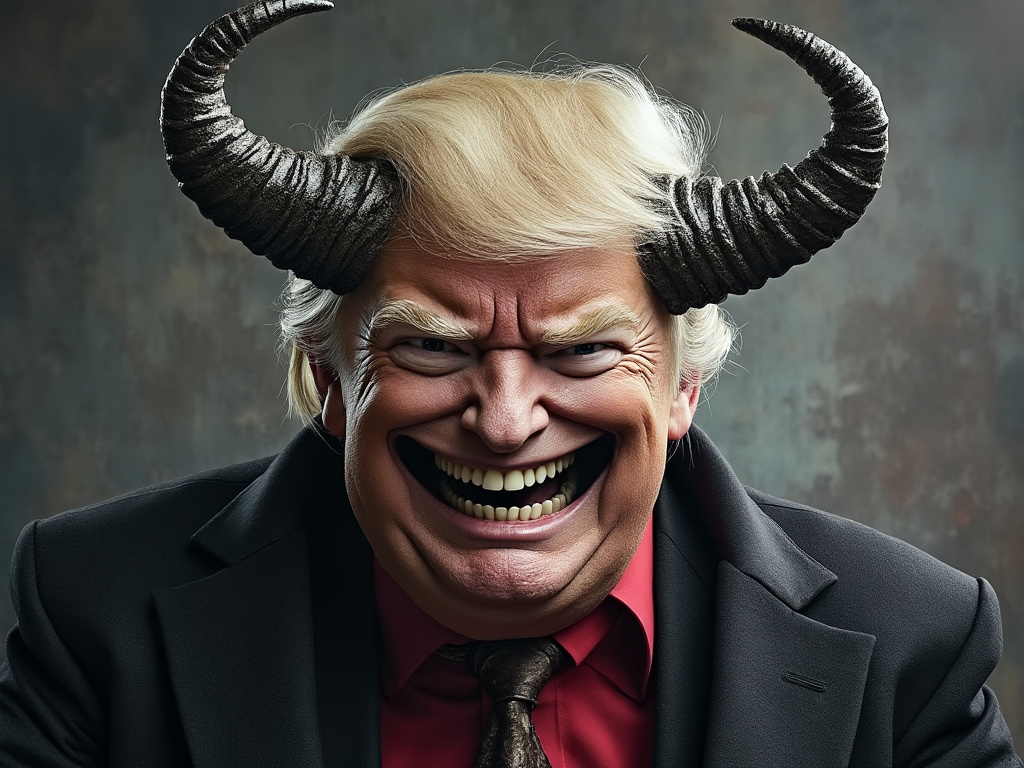In recent years, the political discourse in the United States has become increasingly polarized, with inflammatory rhetoric becoming a hallmark of certain campaigns. At the center of this trend is former President Donald Trump, whose use of provocative language has been both a defining feature of his political style and a source of significant controversy. This blog post aims to examine Trump's rhetoric, particularly in relation to his political opponents and sensitive issues, and explore its impact on the political landscape.
The "Threat to Democracy" Narrative
One of the most prominent themes in Trump's recent rhetoric has been his attempt to flip the "threat to democracy" narrative back onto his opponents. This strategy was on full display during his debate with Vice President Kamala Harris in Philadelphia.
During the debate, Trump branded Harris as a "radical left liberal" and a Marxist, predicting she would be remembered as "the worst vice president in U.S. history" 1. This language is not just hyperbolic; it's part of a consistent pattern where Trump portrays his opponents as existential threats to the nation.
In a town hall in La Crosse, Wisconsin, Trump doubled down on this rhetoric:
"When you say 'threat to democracy,' they are a threat to democracy. I'm not a threat to democracy." 2
This statement exemplifies Trump's tendency to use a "mirror accusation" strategy, where he takes criticisms leveled against him and redirects them towards his opponents.
Dehumanizing Language and Its Consequences
Trump's rhetoric often goes beyond political disagreement, veering into territory that many critics argue is dehumanizing and potentially dangerous. He has repeatedly referred to migrants as "blood-poisoning vermin" 3, language that echoes some of the darkest chapters in history.
This kind of rhetoric has real-world consequences. In Ohio, baseless claims about Haitian immigrants led to school closures due to bomb and shooting threats 3. While Trump may not have directly called for violence, his language creates an environment where such actions become more likely.
The "Communist" and "Fascist" Labels
Trump frequently employs extreme political labels to describe his opponents, particularly Vice President Harris. He has called her both a "communist" and a "fascist" 4, two ideologies that are fundamentally at odds with each other. This use of contradictory terms suggests that the goal is not ideological accuracy but rather to paint Harris in the most negative light possible.
Trump has gone so far as to claim that if Harris is elected, "the country will be over" 4. This apocalyptic language serves to raise the stakes of the election in the minds of his supporters, potentially justifying extreme measures to prevent such an outcome.
Personal Attacks and Mockery
Trump's rhetoric often includes personal attacks and mockery. During the debate with Harris, he criticized her leadership abilities, saying:
"She didn't look like a leader to me. I'll be honest, I don't see her negotiating with President Xi of China, I don't see her with Kim Jong Un like we did with Kim Jong Un." 2
These kinds of personal attacks serve to undermine the credibility of his opponents in the eyes of his supporters, while also potentially inciting more personal animosity towards them.
The Double Standard of "Inciteful Rhetoric"
Interestingly, Trump and his supporters often accuse their opponents of using "inciteful rhetoric" that could lead to violence against Trump. However, this concern rarely extends to the potential consequences of Trump's own inflammatory language.
After an alleged assassination attempt at Trump's golf course in Florida, many of his supporters were quick to blame "hateful rhetoric constantly aimed at Trump" 5. However, these same voices rarely express concern about the potential impact of Trump's rhetoric on his political opponents or vulnerable groups.
The Impact on Democratic Discourse
Trump's rhetorical style has had a profound impact on political discourse in the United States. By consistently using extreme language, he has shifted the Overton window of acceptable political speech, making previously taboo statements seem more mainstream.
This has led to a situation where, as Jonah Goldberg notes in the Los Angeles Times:
"We can wax Jesuitical about the differences between saying Harris will 'destroy' the country and saying that Trump is a 'threat to democracy,' but the differences between the claims are nugatory." 5
In other words, the extreme rhetoric has become so commonplace that it's difficult to distinguish between genuinely alarming claims and political hyperbole.
Conclusion
Donald Trump's rhetoric is a complex and controversial aspect of modern American politics. While his supporters often praise him for "saying what others are afraid to say," critics argue that his language is divisive, potentially dangerous, and harmful to democratic norms.
As we move forward, it's crucial to critically examine the impact of such rhetoric on our political discourse and social fabric. Whether one supports or opposes Trump, the effects of his linguistic choices on American politics are undeniable and likely to be felt for years to come.
-
CNN - 27 lines to explain the Trump-Harris presidential debate ↩
-
WisPolitics - Trump calls Harris the real threat to democracy during La Crosse town hall ↩↩
-
Los Angeles Times - The rhetoric of Harris and Biden isn't what's sparking political violence. Here's why ↩↩
-
BBC News - 'Left-wing lunatic' and 'a disgrace': How Trump and Harris describe each other ↩↩
-
Los Angeles Times - The rhetoric of Harris and Biden isn't what's sparking political violence. Here's why ↩↩
